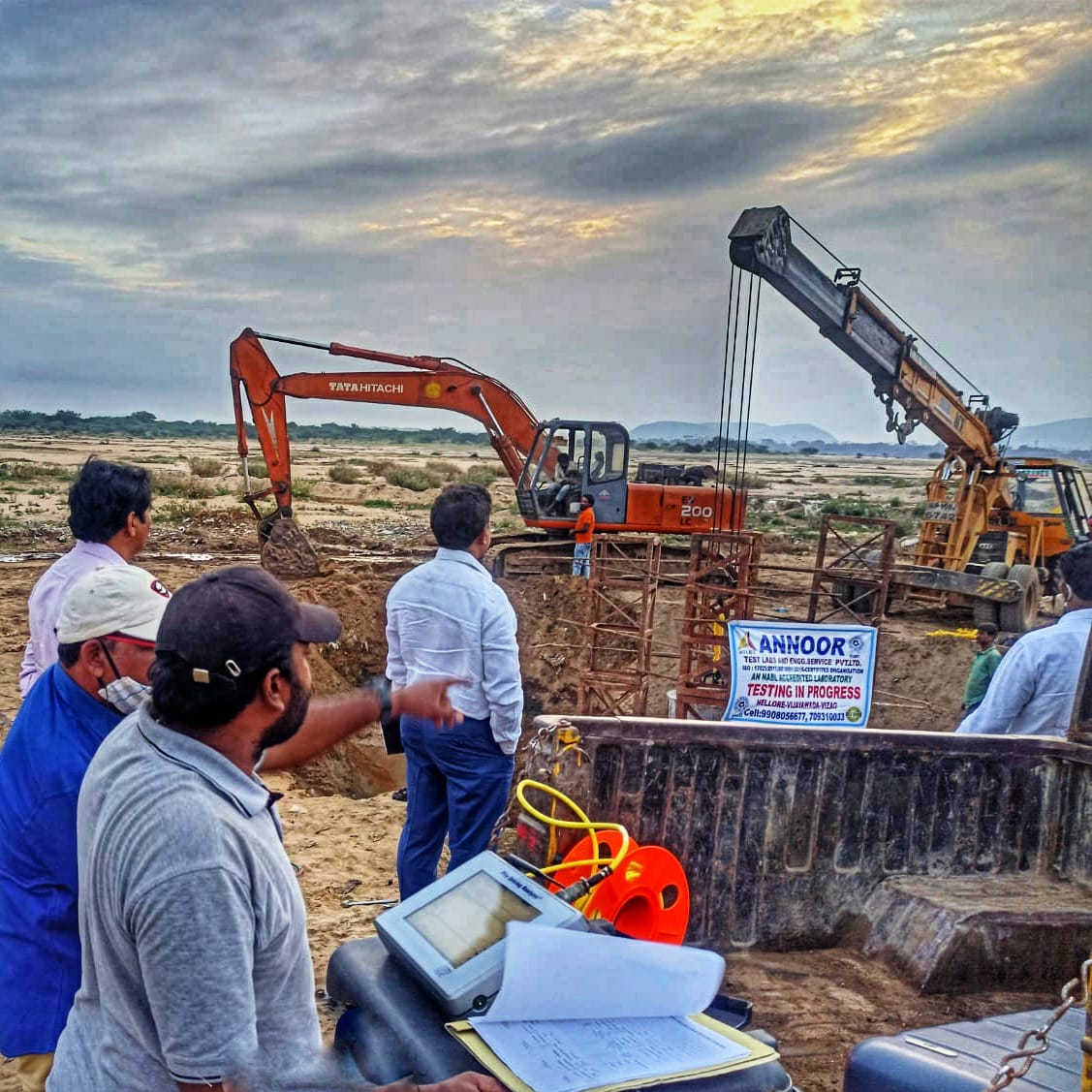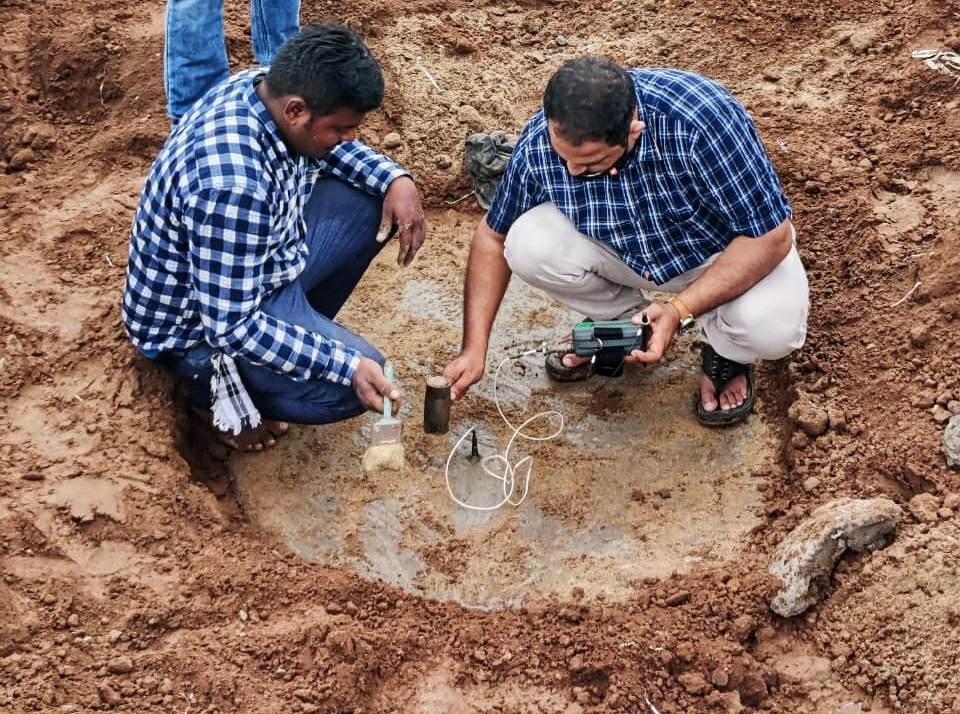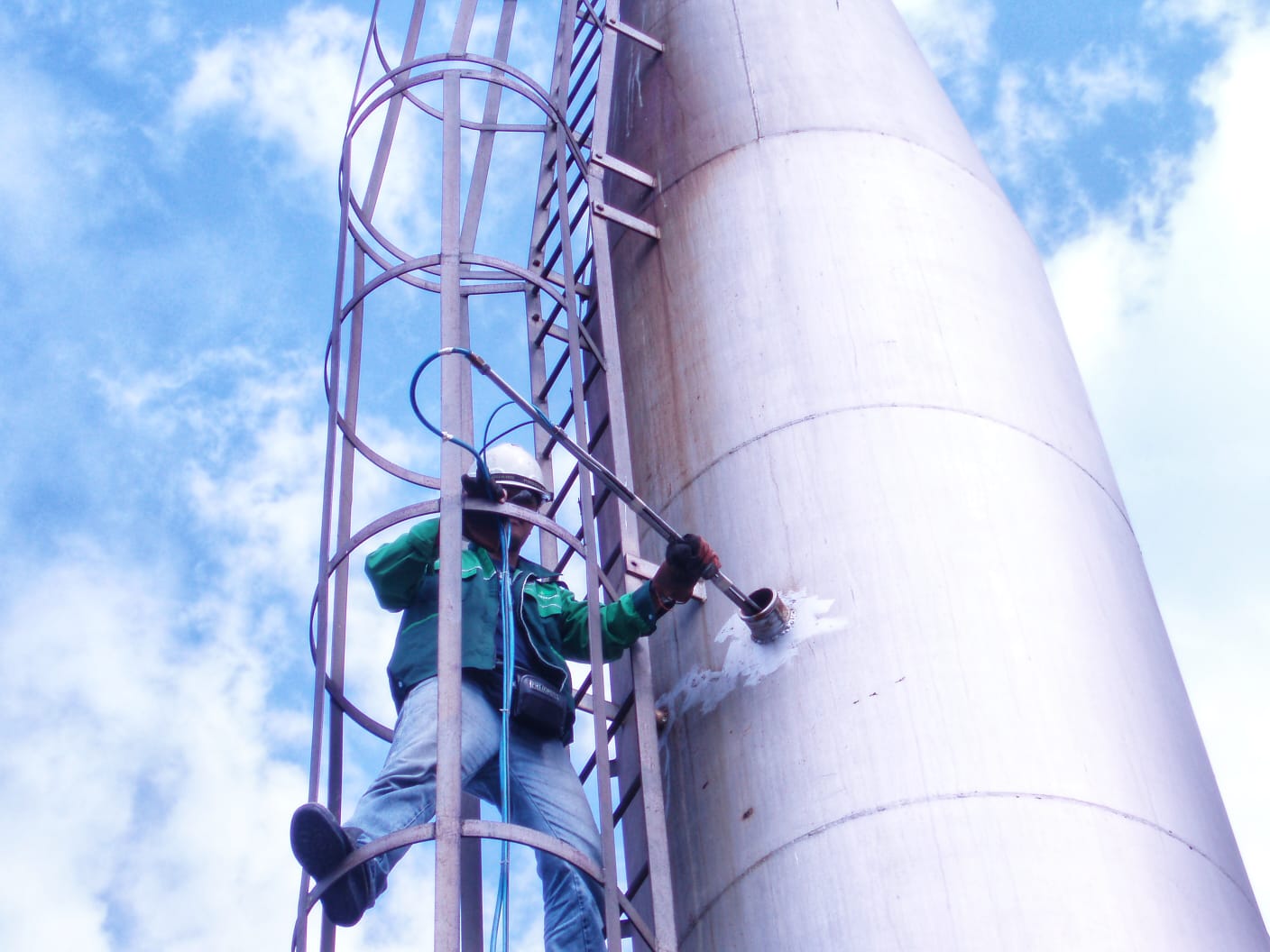"Penetration Test for Bitumen: Assessing Flexibility for High-Traffic Roads"
Penetration Test for Bitumen: Assessing Flexibility for High-Traffic Roads
Introduction
High-traffic roads demand materials that can withstand immense pressure, temperature variations, and frequent vehicular load. Bitumen, a critical component in road construction, requires thorough testing to ensure its flexibility and durability. The penetration test for bitumen is a vital procedure to assess these properties, ensuring safe and long-lasting road infrastructure.
Purpose of the Test
The penetration test for bitumen determines the consistency and grade of bitumen by measuring the depth a standard needle penetrates under specific conditions. This test provides insights into the material's softness, making it suitable for various climatic conditions and traffic loads. By quantifying the hardness or softness of the bitumen, engineers can predict its behavior under actual service conditions. For instance, softer bitumen is ideal for colder climates where flexibility is essential, while harder bitumen suits hotter regions, offering resistance to deformation. Furthermore, the test is instrumental in classifying bitumen grades, aiding in the selection of materials that match the specific requirements of road construction projects. The results also ensure compliance with national and international standards, fostering reliability and safety in infrastructure development.
Importance in Engineering and Construction
Bitumen plays a pivotal role in the construction of durable and high-performance roads, highways, and other infrastructure. The penetration test is a cornerstone in engineering and construction for the following reasons:
- Ensures Material Suitability: By determining the grade and consistency of bitumen, this test ensures the material aligns with specific project requirements, including climate and traffic load.
- Promotes Infrastructure Longevity: Roads constructed with accurately graded bitumen are more resistant to cracking, rutting, and other forms of deterioration, reducing maintenance costs and extending lifespan.
- Optimizes Performance for Diverse Conditions: The test helps engineers select bitumen grades tailored to different environmental and operational conditions, ensuring reliability whether in cold climates requiring flexibility or hot regions needing hardness.
- Facilitates Compliance with Standards: Compliance with IS codes and international standards ensures quality assurance in construction projects, fostering trust and adherence to industry benchmarks.
- Supports Sustainability Goals: Accurate testing minimizes waste and ensures efficient use of resources, contributing to eco-friendly construction practices.
- Enhances Decision-Making: By providing precise data on bitumen properties, the test aids engineers and stakeholders in making informed choices, from material procurement to project execution.
- Addresses Safety Concerns: Properly tested bitumen ensures road surfaces can withstand high traffic volumes and adverse conditions, enhancing overall safety for users.
Definition and Overview
The penetration test is a standardized method to measure the consistency and hardness of bitumen. It involves determining the depth (in 0.1 mm units) to which a standard needle penetrates a bitumen sample under specified conditions. These conditions include a load of 100 grams, a temperature of 25°C, and a duration of 5 seconds.
This test is essential for classifying bitumen into specific grades, which are critical in matching the material's properties to its intended use in road construction. For example, softer bitumen grades with higher penetration values are better suited for colder regions, while harder grades are optimal for hot climates. The test provides a quantitative assessment of bitumen’s ability to perform under various climatic and traffic conditions, making it an indispensable tool for engineers and construction professionals.
By ensuring the correct grade selection, the penetration test supports the construction of durable and resilient roads, capable of withstanding high traffic loads and fluctuating environmental conditions. Furthermore, it aligns with established standards like IS 1203, ensuring consistency and reliability in material testing.
Types and Variations of Penetration Tests:
- Standard Penetration Test (SPT):
- Purpose: Measures soil resistance to penetration using a standard procedure.
- Conditions: Conducted at a consistent temperature of 25°C to ensure uniformity in results.
- Application: Commonly used for assessing soil density and strength in geotechnical engineering projects.
- Modified Penetration Test (MPT):
- Purpose: Adapted to measure penetration under specialized environmental conditions.
- Conditions: Conducted at varying temperatures to simulate real-world scenarios such as extreme heat or cold.
- Application: Useful for projects in diverse climates or regions with unique soil properties.
- Dynamic Penetration Test (DPT):
- Purpose: Evaluates soil behavior under dynamic loads and extended durations.
- Conditions: Involves variable weights and impact durations to replicate dynamic forces.
- Application: Ideal for analyzing soil strength for structures exposed to vibrations, such as bridges, highways, or railways.
- Cone Penetration Test (CPT):
- Purpose: Provides a detailed profile of soil stratification and mechanical properties.
- Conditions: Utilizes a cone-shaped probe pushed into the ground at a steady rate.
- Application: Commonly used for soft soil conditions and offshore investigations.
- Static Penetration Test:
- Purpose: Measures soil resistance to static loads.
- Conditions: A probe is pressed into the soil at a constant speed without dynamic impacts.
- Application: Suitable for soil layers requiring detailed strength analysis.
- California Bearing Ratio (CBR) Penetration Test:
- Purpose: Determines the load-bearing capacity of soil for road and pavement design.
- Conditions: Uses a standard-sized plunger to measure resistance under controlled pressure.
- Application: Widely used in the construction of highways and airport runways.
Why is the Penetration Test Important?
Penetration tests play a crucial role in geotechnical engineering, construction, and infrastructure development. Their importance can be attributed to several key factors:
- Assessing Soil Strength and Stability:
- Penetration tests provide direct insights into the bearing capacity and strength of soil.
- These tests help determine whether the soil can support the intended loads of structures such as buildings, bridges, and roads.
- Foundation Design:
- The data obtained from penetration tests is essential for designing safe and efficient foundations.
- Engineers use the results to choose appropriate foundation types (e.g., shallow or deep foundations) and avoid issues like settlement or structural failure.
- Site Suitability Evaluation:
- Before commencing construction, penetration tests help evaluate whether the site is suitable for the proposed project.
- They identify soil characteristics that may require additional treatment, such as compaction, reinforcement, or stabilization.
- Soil Stratification Analysis:
- These tests reveal the layering of soil, identifying variations in properties such as density, cohesion, and moisture content at different depths.
- Understanding soil stratification is critical for projects requiring excavation, piling, or tunneling.
- Earthquake and Dynamic Load Considerations:
- Penetration tests assess soil behavior under dynamic loads, including vibrations and seismic forces.
- The results are used to design structures that can withstand earthquakes, machinery-induced vibrations, or heavy traffic loads.
- Cost Optimization:
- By identifying soil properties accurately, penetration tests help optimize construction methods and materials.
- This ensures the most economical approach to foundation design and reduces the risk of overengineering.
- Risk Mitigation:
- Penetration tests identify problematic soil conditions, such as loose, collapsible, or expansive soils.
- Early detection of such issues prevents costly repairs, delays, or catastrophic failures during or after construction.
- Compliance with Standards and Regulations:
- Many construction codes and standards mandate penetration tests to ensure structural safety and integrity.
- These tests ensure that projects meet regulatory requirements and industry best practices.
- Hydrogeological Assessment:
- Penetration tests can also provide information about groundwater conditions, which are critical for projects involving excavation or underground structures.
- Knowing the groundwater table helps in designing effective drainage and waterproofing solutions.
- Versatility Across Projects:
- Penetration tests are applicable in various sectors, from infrastructure development and industrial projects to environmental and forensic investigations.
Key Benefits and Applications of Penetration Tests
Penetration tests provide critical data for construction, geotechnical engineering, and infrastructure projects. Below are the key benefits and applications:
Key Benefits:
- Accurate Soil Strength Assessment:
- Determines the soil's ability to support loads, ensuring structural stability and safety.
- Customized Foundation Design:
- Provides data for designing foundations tailored to the specific soil conditions at a site.
- Early Identification of Problematic Soil:
- Detects issues like loose, collapsible, or expansive soils that may require remediation before construction.
- Improved Cost Efficiency:
- Helps optimize construction materials and methods, reducing unnecessary expenses.
- Informed Risk Management:
- Mitigates risks of settlement, slope failures, or structural instability by providing critical subsurface information.
- Data for Seismic and Dynamic Analysis:
- Evaluates soil response to vibrations, traffic loads, and seismic forces, ensuring the resilience of infrastructure in dynamic conditions.
- Time-Saving Insights:
- Rapid testing methods, like dynamic penetration tests, provide timely data to support project timelines.
- Regulatory Compliance:
- Ensures adherence to building codes, safety standards, and industry regulations.
- Hydrogeological Insights:
- Identifies groundwater levels and soil permeability, aiding in water management and drainage solutions.
- Versatility Across Soil Types:
- Adaptable to various terrains and site conditions, from soft clay to dense gravel.
Applications Across Industries:
- Building and Structural Projects:
- Determines the suitability of soil for residential, commercial, and industrial buildings.
- Supports design of deep foundations like piles and piers.
- Road and Pavement Construction:
- Used for evaluating subgrade strength and determining pavement thickness.
- Ensures long-term durability and performance of roads and runways.
- Bridges and Tunnels:
- Assesses soil stability and load-bearing capacity for large-scale infrastructure projects.
- Essential for designing safe approaches and abutments.
- Dams and Embankments:
- Evaluates soil compaction and seepage potential in water-retaining structures.
- Ensures structural integrity against erosion and pressure.
- Railways:
- Ensures soil stability for tracks and rail foundations, minimizing risks of settlement or misalignment.
- Seismic and Disaster-Resilient Design:
- Provides input for designing earthquake-resistant structures by analyzing liquefaction potential.
- Offshore and Marine Engineering:
- Supports the construction of offshore platforms, docks, and piers by assessing underwater soil conditions.
- Environmental and Forensic Investigations:
- Helps in landfill site selection and identifying contamination in soil layers.
- Assists in legal cases involving structural failures or land disputes.
- Mining and Resource Extraction:
- Used in evaluating soil and rock properties for safe excavation and mining activities.
- Urban Development and Planning:
- Provides critical data for zoning and land-use planning in growing urban areas.
Comparison of Penetration Testing with Other Testing Methods
Penetration testing is one of several techniques used in geotechnical engineering to assess soil properties. Below is a detailed comparison of penetration tests with other common soil testing methods:
1. Laboratory Soil Testing:
- Purpose: Laboratory tests, such as Atterberg limits, triaxial tests, and direct shear tests, are used to analyze soil properties under controlled conditions.
- Advantages Over Penetration Testing:
- Offers a controlled environment for highly precise measurements.
- Provides a wide range of soil parameters, such as cohesion, permeability, and shear strength.
- Disadvantages Compared to Penetration Testing:
- Requires soil samples to be transported to a laboratory, leading to potential disturbances.
- Time-consuming and costlier for large-scale projects.
- Limited to conditions that may not fully replicate in situ behavior.
2. Plate Load Test:
- Purpose: Measures the bearing capacity of soil directly by applying a load on a rigid plate at the site.
- Advantages Over Penetration Testing:
- Provides direct measurement of the bearing capacity and settlement.
- Useful for large structures requiring detailed load-displacement relationships.
- Disadvantages Compared to Penetration Testing:
- Requires heavy equipment and more space, making it impractical for confined areas.
- Limited to shallow depths, unlike penetration tests, which can reach greater depths.
- More time-consuming and expensive.
3. Geophysical Methods (e.g., Seismic Refraction, Electrical Resistivity):
- Purpose: Non-invasive techniques to study subsurface conditions by measuring physical properties like seismic waves or electrical conductivity.
- Advantages Over Penetration Testing:
- Non-destructive and covers large areas quickly.
- Provides a broader understanding of subsurface geology.
- Effective for detecting anomalies like voids, fractures, or buried utilities.
- Disadvantages Compared to Penetration Testing:
- Limited resolution for small-scale projects or specific soil parameters.
- Results are often qualitative and require validation through penetration or borehole testing.
- Heavily reliant on skilled interpretation.
4. Borehole Sampling and Logging:
- Purpose: Involves extracting undisturbed soil samples for detailed inspection and testing.
- Advantages Over Penetration Testing:
- Offers a comprehensive profile of soil strata, including visible layers and materials.
- Essential for advanced laboratory tests and groundwater analysis.
- Disadvantages Compared to Penetration Testing:
- Requires more time and specialized equipment.
- Expensive for extensive investigations.
- Samples can be disturbed during extraction, affecting accuracy.
5. Standard Proctor Compaction Test:
- Purpose: Determines the optimal moisture content and maximum dry density of soil for compaction.
- Advantages Over Penetration Testing:
- Highly specific for assessing soil compaction and moisture relationships.
- Crucial for earthworks and embankments.
- Disadvantages Compared to Penetration Testing:
- Limited application to in situ strength or bearing capacity analysis.
- Conducted in a controlled lab environment, not directly reflective of field conditions.
6. Cone Penetration Test (CPT):
- Purpose: Uses a cone-shaped probe to measure soil resistance and properties like pore pressure.
- Advantages Over Standard Penetration Testing (SPT):
- Provides continuous data rather than discrete measurements at intervals.
- Offers additional parameters like pore water pressure and soil type classification.
- Requires less time and effort in the field.
- Disadvantages Compared to Standard Penetration Testing:
- Less effective in gravelly or highly dense soils, where cone penetration becomes challenging.
- Equipment is more specialized and costly.
7. Vane Shear Test:
- Purpose: Determines the shear strength of soft clays using a vane inserted into the soil.
- Advantages Over Penetration Testing:
- Directly measures undrained shear strength, ideal for cohesive soils.
- Simpler and faster for soft clays at shallow depths.
- Disadvantages Compared to Penetration Testing:
- Limited to soft clays and cannot be used for granular soils.
- Inapplicable at significant depths or under dynamic loading conditions.
Comparison Summary Table:
|
Testing Method |
Advantages |
Disadvantages |
Best Use Case |
|
Penetration Tests |
Fast, cost-effective, adaptable to field conditions |
May not provide detailed lab-level analysis |
General soil strength and foundation design |
|
Laboratory Tests |
Precise, detailed soil parameters |
Time-consuming, requires undisturbed samples |
Complex soil analysis and research |
|
Plate Load Test |
Direct bearing capacity and settlement data |
Expensive, limited to shallow depths |
Heavy foundations or large loads |
|
Geophysical Methods |
Non-invasive, covers large areas |
Results require validation |
Subsurface exploration, anomaly detection |
|
Borehole Sampling |
Comprehensive stratigraphic data |
Expensive and labor-intensive |
Detailed site investigations |
|
Proctor Test |
Compaction and moisture optimization |
Limited to soil compaction studies |
Earthworks, embankments |
|
Cone Penetration Test |
Continuous and detailed data |
Challenging in coarse-grained soils |
Soil classification, pore pressure analysis |
|
Vane Shear Test |
Simple, effective for soft clays |
Inapplicable to granular soils |
Shear strength of cohesive soils |
Equipment and Setup for Penetration Testing
The equipment and setup for penetration tests depend on the specific type of test being conducted. Below is a detailed breakdown of the equipment required and the typical setup process:
1. Standard Penetration Test (SPT):
- Equipment:
- Drill Rig:
- Used to create boreholes for inserting the split-barrel sampler.
- Split-Barrel Sampler:
- A cylindrical device (50.8 mm outer diameter and 35 mm inner diameter) designed to collect soil samples.
- Drive Hammer:
- A 63.5 kg weight that falls 760 mm to drive the sampler into the ground.
- Drilling Accessories:
- Drill rods and casing to support boreholes.
- Measuring Tape or Scale:
- To record penetration depths.
- Safety Gear:
- Helmets, gloves, and goggles for the team.
- Drill Rig:
- Setup:
- Mark the test location and ensure it is clear of underground utilities.
- Use the drill rig to create a borehole to the desired depth.
- Insert the split-barrel sampler into the borehole.
- Drop the drive hammer repeatedly, recording the number of blows required to drive the sampler 150 mm (in three increments of 50 mm each).
- Collect the soil sample and seal it for analysis.
2. Dynamic Penetration Test (DPT):
- Equipment:
- Cone or Penetration Point:
- A steel cone with a standardized angle, often 60° and 50 mm diameter.
- Hammer:
- Typically 50 kg weight falling 750 mm to provide consistent energy.
- Drive Rods:
- Rods that connect the hammer to the cone and transfer the impact energy.
- Tripod Frame or Support Stand:
- Used to guide the hammer and ensure vertical alignment.
- Recording Device:
- Manual or electronic device to log the number of blows for penetration depth.
- Cone or Penetration Point:
- Setup:
- Assemble the drive rods and attach the cone at the base.
- Position the tripod over the test location to guide the hammer.
- Drive the cone into the ground by dropping the hammer and record the blows required to penetrate a specific depth (commonly 100 mm).
- Continue until reaching refusal (e.g., 10 blows for less than 10 mm penetration).
3. Cone Penetration Test (CPT):
- Equipment:
- Cone Penetrometer:
- A cone with sensors for measuring resistance and, optionally, pore pressure.
- Pushing Mechanism:
- Hydraulic equipment capable of applying a steady push force.
- Data Acquisition System:
- Records cone resistance, sleeve friction, and pore pressure in real-time.
- CPT Rig or Truck:
- A mobile unit that integrates all required equipment.
- Cone Penetrometer:
- Setup:
- Position the CPT rig at the test location and stabilize it.
- Drive the cone into the ground at a controlled rate (typically 20 mm/s).
- Monitor and log data continuously for depth-specific analysis.
- Remove the cone after reaching the desired depth.
4. Plate Load Test:
- Equipment:
- Loading Plate:
- A circular or square steel plate (300–750 mm diameter) placed on the soil surface.
- Load Application System:
- Hydraulic jacks or a reaction frame to apply load incrementally.
- Dial Gauges:
- To measure settlement with precision (up to 0.01 mm).
- Reaction System:
- Includes a counterweight or anchor system to hold the jack in place.
- Pressure Gauge:
- Monitors applied load.
- Loading Plate:
- Setup:
- Prepare the ground surface by leveling and placing the plate.
- Position the hydraulic jack and reaction system above the plate.
- Apply load incrementally and measure settlement after each increment.
- Continue until the soil reaches failure or the desired load is applied.
5. Vane Shear Test:
- Equipment:
- Shear Vane:
- A four-bladed vane with standard dimensions, attached to a rod.
- Torque Measuring Device:
- A calibrated instrument for measuring the torque required to rotate the vane.
- Extension Rods:
- To reach greater depths.
- Protective Sleeve:
- Covers the vane during insertion to prevent damage.
- Shear Vane:
- Setup:
- Insert the vane into the soil, ensuring it reaches the desired depth.
- Rotate the vane at a consistent rate (usually 6° per minute).
- Measure the torque required to shear the soil.
6. General Safety and Setup Considerations:
- Ensure the site is surveyed for underground utilities before drilling or penetrating.
- Use stabilizing equipment like tripods, jacks, or rigs to ensure accurate and safe testing.
- Follow environmental and site-specific regulations, such as noise and debris management.
- Equip personnel with appropriate safety gear, including helmets, gloves, and boots.
Equipment Maintenance:
- Clean and inspect equipment before and after each test to ensure accuracy.
- Calibrate measurement devices (e.g., torque gauges, dial gauges) regularly.
- Replace worn or damaged components like cones, split-barrel samplers, or rods promptly.
Step-by-Step Procedure for Penetration Testing
Penetration testing is a standard geotechnical investigation method used to evaluate soil properties, and it can vary slightly depending on the type of penetration test being conducted. Below is a detailed step-by-step procedure for the most commonly used penetration tests.
1. Standard Penetration Test (SPT)
Step-by-Step Procedure:
- Site Preparation:
- Identify and mark the location for the test, ensuring there are no underground utilities or obstacles.
- Set up the drilling rig and establish a stable position for the drilling platform.
- Drilling the Borehole:
- Use the drilling rig to bore a hole to the desired test depth, typically between 3–20 meters, depending on the project requirements.
- The borehole should be stabilized with casing to prevent collapse during drilling.
- Insertion of Split-Barrel Sampler:
- Insert the split-barrel sampler into the bottom of the borehole.
- The sampler is driven into the soil by the impact of a standard hammer falling from a height of 760 mm.
- Performing the Test:
- Drop the hammer 30 times (63.5 kg hammer falling 760 mm) to drive the sampler into the soil. The number of blows required for each 150 mm of penetration is recorded.
- Typically, the test is conducted in three increments of 50 mm, and the number of blows for each is noted separately.
- The total blow count for 150 mm of penetration is called the N-value.
- Soil Sampling and Analysis:
- After the sampler reaches 150 mm, remove the split barrel and retrieve the soil sample.
- Examine the sample for visual classification (e.g., sand, clay, gravel) and record other physical properties like moisture content.
- Repeat at Desired Depths:
- The test is repeated at regular intervals (usually every 1.5 to 3 meters) to capture the soil profile at various depths.
- End of Test:
- Record all observations, including the N-value, soil conditions, and any anomalies found in the borehole.
- Seal the borehole to prevent collapse and ensure safety.
2. Dynamic Penetration Test (DPT)
Step-by-Step Procedure:
- Site Preparation:
- Mark the test location and ensure the ground is level and free of obstacles.
- Position the test apparatus (penetrometer) and prepare the hammer mechanism.
- Equipment Setup:
- Position the tripod or support frame above the test point to ensure proper alignment of the hammer.
- Attach the penetrometer to the drive rods and align it vertically.
- Initial Penetration:
- Drop the hammer (typically 50 kg weight falling 750 mm) onto the drive rods to begin penetration of the cone into the ground.
- The number of blows and the depth of penetration are recorded continuously as the hammer is dropped.
- Recording Penetration:
- Monitor and record the number of blows required to penetrate a set distance, often 100 mm.
- Each blow is counted, and the resulting penetration rate is logged.
- Refusal or Maximum Penetration:
- Continue the test until a predetermined maximum depth is reached or refusal occurs (i.e., when more than 10 blows per 10 mm of penetration are observed).
- At refusal, the soil is considered too dense for further penetration with the current hammer setup.
- Repeat or End Test:
- The test is repeated at different locations if required to create a profile of soil resistance over the site.
- Analysis and Reporting:
- Analyze the number of blows and corresponding penetration depth to interpret soil strength and resistance.
- Record the final depth of the test and document any observations or anomalies.
3. Cone Penetration Test (CPT)
Step-by-Step Procedure:
- Site Preparation:
- Mark the test location and ensure the site is clear of obstacles.
- Stabilize the CPT rig or truck to avoid tilting during penetration.
- Cone Penetrometer Setup:
- Position the cone penetrometer at the test location, ensuring it is aligned vertically.
- Attach the cone to the hydraulic push system.
- Pushing the Cone into the Ground:
- Begin applying a steady, continuous downward force to push the cone into the soil at a rate of 20 mm/s.
- Use the hydraulic system to ensure constant pressure.
- Data Collection:
- As the cone penetrates the soil, measure the resistance at the cone tip (cone resistance) and sleeve friction.
- In some cases, pore pressure is also measured using a pore pressure sensor attached to the cone.
- Recording Data:
- Continuously log the data using the on-site data acquisition system, recording both depth and resistance.
- Record penetration at regular intervals (e.g., every 20 mm or 100 mm) to build a detailed profile.
- Reaching Test Depth:
- Continue the penetration process until the desired depth is reached or refusal occurs.
- Record the maximum depth or any changes in the soil type observed during the test.
- Analysis and Reporting:
- After completing the test, analyze the resistance data to determine soil properties, including soil stratification and strength.
- Prepare a detailed report with depth profiles, resistance values, and soil classifications.
4. Plate Load Test
Step-by-Step Procedure:
- Site Preparation:
- Select a test location with a stable surface and level the area where the plate will be placed.
- Ensure the area is free from obstructions that may interfere with load application.
- Placement of the Plate:
- Position the loading plate (typically 300 mm to 750 mm in diameter) at the designated test point on the soil surface.
- Ensure that the plate is perfectly horizontal to achieve uniform load distribution.
- Load Application:
- Apply a known load incrementally using a hydraulic jack or other suitable loading mechanism.
- Measure the settlement of the plate under each load increment using dial gauges or displacement sensors.
- Monitoring Settlement:
- Record the settlement after each load increment, noting both load and displacement.
- Continue applying load until the settlement becomes too large or the soil shows signs of failure.
- Decreasing the Load:
- Gradually reduce the applied load in increments and measure the rebound (elastic recovery) of the soil.
- Continue to monitor settlement and document all changes.
- End of Test:
- Once all load and rebound measurements are recorded, analyze the data to determine the soil's bearing capacity and settlement characteristics.
5. Vane Shear Test
Step-by-Step Procedure:
- Site Preparation:
- Choose a location where the soil is soft enough for vane insertion (usually clay or cohesive soils).
- Clear the test site to allow easy access for the operator.
- Vane Insertion:
- Insert the vane shear device into the soil at the desired depth, ensuring it is perpendicular to the surface.
- The vane should be pushed into the soil gently without disturbing the surrounding soil.
- Rotating the Vane:
- Slowly rotate the vane at a consistent speed (usually 6° per minute).
- Monitor and record the torque required to rotate the vane until soil shear failure occurs.
- Measuring the Torque:
- The torque required to shear the soil is recorded using a calibrated device attached to the vane.
- Calculating Shear Strength:
- Use the torque measurements and the dimensions of the vane to calculate the undrained shear strength of the soil at that depth.
- Repeat or End Test:
- The test can be repeated at different depths to evaluate shear strength at various layers.
- If necessary, move the vane to a new location and repeat the process.
Analysis and Interpretation of Results in Penetration Testing
Once a penetration test has been conducted, the results need to be analyzed and interpreted to gain valuable insights into the soil’s properties and its suitability for various construction projects. The interpretation process varies based on the type of test being performed, but it generally involves understanding how the data correlates with soil strength, compaction, and other key geotechnical factors. Here’s a detailed guide on how the results are analyzed and interpreted across various penetration tests:
1. Standard Penetration Test (SPT)
Analysis:
- N-Value Calculation:
- The number of blows required to penetrate the split-barrel sampler into the soil (typically 150 mm) is recorded at various depths. This value is known as the N-value.
- The N-value is an empirical measure of the soil’s resistance to penetration and can be used to estimate soil strength and classification.
- Correction Factors: The measured N-value may need to be corrected for overburden pressure, borehole diameter, sampler type, and other field conditions using standard correction factors.
- Soil Stratigraphy:
- The variation in N-values as you progress through different depths provides a soil profile, which helps classify different layers of the soil (e.g., soft clay, dense sand).
- Correlation with Soil Properties:
- The N-value is correlated with soil parameters such as:
- Cohesion (for clays)
- Shear strength (for sands)
- Relative density (for sands)
- Empirical correlations from charts and tables can be used to estimate other properties, like compressibility, shear modulus, or bearing capacity.
- The N-value is correlated with soil parameters such as:
Interpretation:
- Soft/Loose Soil: Low N-values (less than 10) indicate soft or loose soil conditions, which may not be suitable for heavy construction without further reinforcement.
- Dense Soil: High N-values (over 30) indicate dense or hard soil, which typically offers better support for foundations but might require special equipment for excavation.
- Intermediate Values: N-values between 10 and 30 suggest medium-density soils, where careful consideration of foundation design and excavation methods is required.
2. Dynamic Penetration Test (DPT)
Analysis:
- Blow Count vs. Penetration: The number of blows required to penetrate the soil for each set depth (e.g., 100 mm) is logged and analyzed.
- Penetration Resistance: The resistance to penetration is calculated by noting the number of blows over the penetrated depth. Higher resistance typically correlates with denser or more compact soil.
- Depth Profile: DPT data is often recorded continuously, producing a depth profile of the soil’s resistance to penetration at different layers.
Interpretation:
- Soil Strength:
- Low blow counts (i.e., easy penetration) suggest weaker soils, while high blow counts indicate stronger, denser soils.
- Soil Classification: DPT results can be used to classify soils into groups such as sand, clay, or gravel by analyzing the resistance profiles.
- Refusal Zone: A significant increase in blow counts (e.g., more than 10 blows for 10 mm penetration) indicates the transition to very dense or hard soils, often referred to as a refusal zone.
- Bearing Capacity Estimation: DPT results can be used to estimate the bearing capacity of the soil by relating the resistance measurements to empirical formulas or tables.
3. Cone Penetration Test (CPT)
Analysis:
- Continuous Data Logging: The CPT provides continuous data regarding soil resistance (cone tip resistance) and sleeve friction as the cone penetrates the soil. Additional measurements such as pore pressure may also be logged.
- Soil Stratigraphy: The changes in resistance and friction with depth indicate different layers of soil and provide a detailed profile of the soil's stratification.
- Soil Behavior Type (SBT) Chart: CPT results can be plotted on an SBT chart to classify soil types based on tip resistance, sleeve friction, and pore pressure.
- Pore Pressure Measurements (in CPTu): In addition to tip resistance and sleeve friction, pore pressure measurements help identify water table depth, permeability, and soil consolidation.
Interpretation:
- Soft Clays (Low Cone Resistance): Low cone resistance values (typically below 2 MPa) indicate soft, cohesive soils, often clays or silts, which may have low shear strength and require deeper foundations.
- Sands and Granular Soils (High Cone Resistance): Higher cone resistance values (over 5 MPa) suggest dense sands or gravel, which generally provide better bearing capacity but can be challenging for excavation.
- Identifying Soil Layers: The changes in resistance with depth help differentiate between cohesive and granular soils, providing a detailed subsurface profile.
- Estimate Soil Parameters: The tip resistance is used to estimate the shear strength and modulus of the soil, while sleeve friction helps gauge frictional properties. Pore pressure data can be used to assess soil drainage characteristics.
4. Plate Load Test
Analysis:
- Settlement vs. Load Curve: The primary result of a plate load test is the relationship between the applied load and the resulting settlement. A plot of this data can reveal the soil’s load-bearing behavior.
- Ultimate Bearing Capacity: The ultimate bearing capacity can be estimated from the test data by determining the load at which settlement accelerates rapidly (indicating soil failure).
- Elastic Rebound: The recovery or rebound of the soil after the load is removed can provide insights into the soil’s elasticity and its capacity to handle repeated loading.
Interpretation:
- Initial Settlement: The initial settlement under low loads corresponds to the elastic compression of the soil and can help determine how the soil will behave under typical loads.
- Ultimate Bearing Capacity: This is the load at which settlement becomes disproportionately large (often 10–20 mm). The point at which the soil fails to resist additional loading is crucial for determining foundation design.
- Soil Deformation Characteristics: The rate of settlement under various loads can be analyzed to assess the potential for future deformation under load, which can influence foundation design and long-term performance.
5. Vane Shear Test
Analysis:
- Torque vs. Shear Strength: The torque required to rotate the vane is measured at different depths. The shear strength of the soil is then calculated using the torque value and the dimensions of the vane.
- Undrained Shear Strength: The vane shear test is particularly useful for determining the undrained shear strength of cohesive soils (clays), which is critical for analyzing stability and designing temporary works in soft soils.
Interpretation:
- Low Shear Strength (Soft Clays): Low torque readings indicate weak soils, often found in soft clays. These soils are likely to experience significant settlement under load and may need ground improvement techniques for foundation support.
- High Shear Strength (Stiff Clays): Higher torque values indicate stronger soils, which can support heavier loads and are typically used for deeper foundation designs.
- Soil Behavior: The variation in shear strength at different depths helps identify changes in soil consistency and strength profiles, crucial for understanding slope stability and designing foundations.
General Considerations for Interpretation of Penetration Test Results:
- Soil Behavior: The results of penetration tests provide insights into the consistency and behavior of soil under stress. Penetration resistance can indicate the level of compaction, soil cohesion, and the potential for liquefaction in sandy soils.
- Soil Stratification: By interpreting the results of different types of penetration tests, engineers can create a comprehensive subsurface profile, identifying the depth and characteristics of various soil layers. This is crucial for foundation design.
- Foundation Design Implications: Penetration testing is essential for determining the appropriate foundation type (shallow or deep), estimating settlement behavior, and assessing the safety and stability of structures.
- Correction for Overburden Pressure: In tests like SPT, correction factors are applied to account for the effects of overburden pressure, especially when comparing data from different depths or locations.
Applications of Penetration Testing
Penetration testing plays a crucial role in geotechnical investigations by providing valuable data on soil properties and behavior under different conditions. These tests are used in various fields of engineering, construction, and environmental studies to ensure safe and efficient design, construction, and site management. Here is an extended overview of the various applications of penetration testing:
1. Foundation Design and Engineering
Penetration tests are extensively used to evaluate soil conditions for the design and construction of foundations. The data obtained helps engineers to determine the type of foundation that is most suitable for the project.
- Shallow Foundations: Penetration tests, especially the Standard Penetration Test (SPT), provide insights into the strength and density of soils at shallow depths. This is essential for the design of shallow foundations, such as slab-on-grade or spread footings.
- Deep Foundations: For projects requiring deep foundations (piles, caissons, etc.), penetration tests like Cone Penetration Test (CPT) provide detailed information about soil layers at greater depths. This is crucial for understanding how deep the foundation needs to go to ensure stability.
- Bearing Capacity Estimation: The N-values from the SPT or resistance data from CPT and Dynamic Penetration Tests (DPT) can be used to estimate the soil’s bearing capacity, which is a fundamental consideration when determining the type and size of foundations.
2. Soil Compaction and Quality Control
Penetration testing is often used during construction to assess the quality and compaction of soil. This helps ensure that the soil has sufficient strength and stability for the intended structure.
- Compaction Control: During construction, penetration tests can be used to measure the effectiveness of soil compaction, especially for subgrades and embankments. The resistance to penetration (such as from DPT or SPT) can be compared with established standards to assess compaction.
- Quality Control: Penetration tests are commonly employed in the field to perform quality control checks on backfill materials, roadbeds, and pavement subgrades. Results are compared with specifications to ensure the materials meet the necessary compaction and strength requirements.
3. Site Characterization and Soil Stratigraphy
Penetration tests are invaluable for site characterization, as they provide detailed information about the subsurface soil profile, including soil types, stratigraphy, and variations in strength.
- Soil Profiling: Tests like CPT and DPT provide continuous data, allowing for detailed mapping of soil stratigraphy. This helps identify various layers of soil such as clay, silt, sand, and gravel at different depths.
- Determining Soil Properties: Penetration tests also help in determining key soil properties, including shear strength, density, and consistency. These properties are critical for understanding the behavior of the soil under load.
- Stratigraphic Mapping: The depth and nature of various soil layers can be visualized, which is important for predicting settlement, lateral pressure, and potential failure mechanisms.
4. Slope Stability and Earthquake Engineering
Penetration tests play a key role in evaluating soil conditions in areas prone to landslides, seismic activity, or other geohazards. Understanding soil strength and behavior is crucial for designing safe and stable structures in such environments.
- Slope Stability Analysis: In hilly or mountainous regions, penetration tests (such as vane shear tests) help assess soil shear strength in cohesive soils. This data is essential for slope stability analysis and the design of stabilizing structures like retaining walls or soil reinforcement systems.
- Liquefaction Potential: Penetration tests are frequently used to evaluate the potential for soil liquefaction during seismic events, especially in sandy soils. The penetration resistance from tests like CPT or SPT can be correlated with the likelihood of liquefaction, helping engineers design foundations that can withstand seismic forces.
- Seismic Site Classification: Penetration testing results can also contribute to seismic site classification, which is necessary for earthquake-resistant design codes. The shear wave velocity obtained from CPT can be used to assess the soil's response to seismic waves.
5. Environmental and Geotechnical Surveys
Penetration tests are crucial for environmental and geotechnical surveys, as they provide detailed information about subsurface conditions without the need for extensive excavation. This helps in various environmental and remediation applications.
- Contamination Studies: Penetration testing is used to study the subsurface in environmental investigations, particularly when assessing potential contamination in soil. For example, measuring the penetration resistance helps identify zones where pollutants may have accumulated, especially in industrial sites or landfills.
- Soil Remediation: In the context of soil remediation, penetration tests can assess the extent of contamination and help in determining the effectiveness of remediation efforts. If the soil has been treated, penetration resistance can indicate whether the soil has been adequately remediated to meet construction standards.
- Groundwater Monitoring: Penetration tests like CPT, which may include pore pressure measurements, can provide insights into the behavior of groundwater in relation to soil. This is particularly useful in areas with fluctuating water tables or where groundwater movement may impact foundation performance.
6. Road and Pavement Design
Penetration tests are extensively used in road and pavement construction to evaluate the strength and suitability of the soil for supporting vehicular traffic loads.
- Subgrade Evaluation: Penetration tests help assess the strength of the subgrade soil, which is critical for the design of road foundations. Poor subgrade strength can lead to road surface degradation over time. Penetration resistance data is used to determine the thickness of pavement layers.
- Evaluation of Soil Bearing Capacity: For roads, airports, or railways, penetration tests can help determine the bearing capacity of the subgrade, ensuring that the structure will remain stable under traffic loads.
- Determining Soil Types for Pavement Layers: Penetration tests, especially CPT and DPT, help classify soils along the proposed route of a road or runway, ensuring that the correct type of subbase or base material is used.
7. Foundation Settlement and Load Testing
Penetration testing is essential for understanding how soil will behave under load and predicting potential settlement. This data informs the design of foundation systems that can prevent excessive settlement or structural damage.
- Predicting Settlement: Penetration tests can provide data that is used to estimate the settlement of structures under applied loads. This is especially important for high-rise buildings or large structures where settlement must be carefully controlled.
- Verification of Foundation Design: After construction, penetration tests can be used to verify that the foundation design is sufficient for the soil conditions and that the soil does not experience excessive or uneven settlement.
- Foundation Design for Dynamic Loads: For projects involving large dynamic loads, such as bridges or industrial equipment foundations, penetration testing can assess soil behavior under cyclic or impact loads, ensuring that the foundation will perform as expected over time.
8. Tunnel and Underground Construction
In tunnel and underground construction projects, penetration testing is crucial to assess the subsurface conditions and ensure the safety of excavations.
- Tunnel Design: Penetration tests provide critical information on the soil's compressibility, shear strength, and potential for settlement. This helps engineers design tunnels that can withstand ground movements and avoid failure.
- Ground Support Requirements: In soft ground conditions, penetration testing data helps determine the level of ground support required to stabilize the tunnel and prevent collapse.
- Assessment of Groundwater Conditions: Penetration tests, particularly those that measure pore pressure, can provide insights into groundwater conditions, which are critical for managing seepage and water control during tunneling.
9. Marine and Offshore Construction
Penetration testing is also crucial for marine and offshore construction projects, such as piers, foundations for offshore oil rigs, and coastal infrastructure.
- Soil and Sediment Evaluation: For marine projects, penetration tests are used to evaluate the strength and density of marine sediments and soils at the seabed. This is essential for designing foundations and moorings for structures like piers, platforms, and offshore wind turbines.
- Subsea Foundation Design: Penetration resistance is particularly important for evaluating soils beneath the water table. For offshore platforms, penetration tests help determine if the seabed can support heavy loads without excessive settlement.
- Assessing Seismic Stability: Marine and offshore structures are particularly vulnerable to seismic events. Penetration tests help assess the soil’s resistance to seismic forces, ensuring the stability of structures in dynamic environments.
Challenges and Limitations of Penetration Testing
While penetration testing provides valuable data for geotechnical investigations, there are several challenges and limitations that engineers and project managers must consider when using these methods. These challenges can impact the accuracy, reliability, and applicability of the results, making it essential to understand these limitations for effective planning and interpretation.
1. Variability in Soil Conditions
Challenge:
- Inconsistent Results Across Locations: Soil conditions
Read More


































